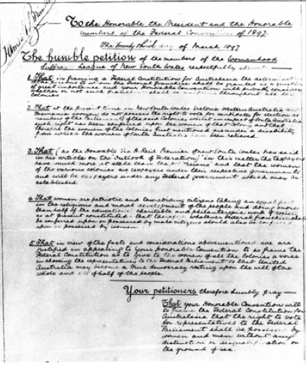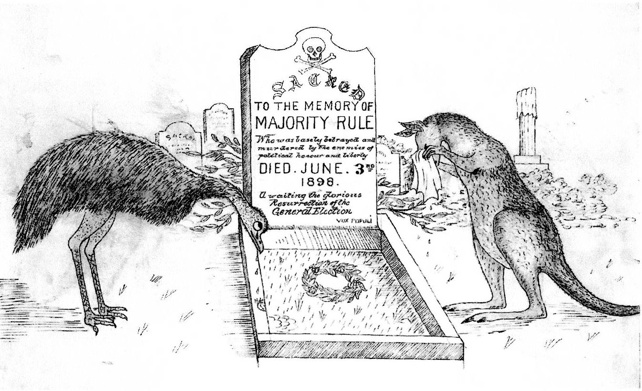Petition from the Womanhood Suffrage League of New South Wales to the 1897 National Australasian Convention (abridged)
to the Honourable the President and the Honourable members of the electoral Convention of 1897.
The humble petition of the members of the Womanhood Suffrage League of New South Wales respectfully sheweth…
2. That at the present time in New South Wales, Victoria, Western Australia and Tasmania women do not possess the right to vote for candidates for election as members of Parliament of the said colonies whilst in respect of South Australia such right has been conferred upon the women of that colony and that therefore the women of the colonies first mentioned are under a disability from which the women of South Australia have been relieved.
3. That (as the honourable G. H.Reid Premier of New South Wales has said in his article on the Outlook of Federation ) "in this matter the taxpayer has much more at stake than the politicians" and that the women of the various colonies are taxpayers under their respective governments and will be tax payers under any federal government which may be established.
4. That women are patriotic and law abiding citizens taking an equal part in the religious and moral development of the people.
5. That in view of the facts and considerations abovementioned we are justified in appealing to your Honourable Convention to so frame the Federal Constitution as to give the women of all the colonies a voice in choosing the representatives to the Federal parliament so that united Australia may become a true democracy resting upon the will of the whole and not half of the people.

